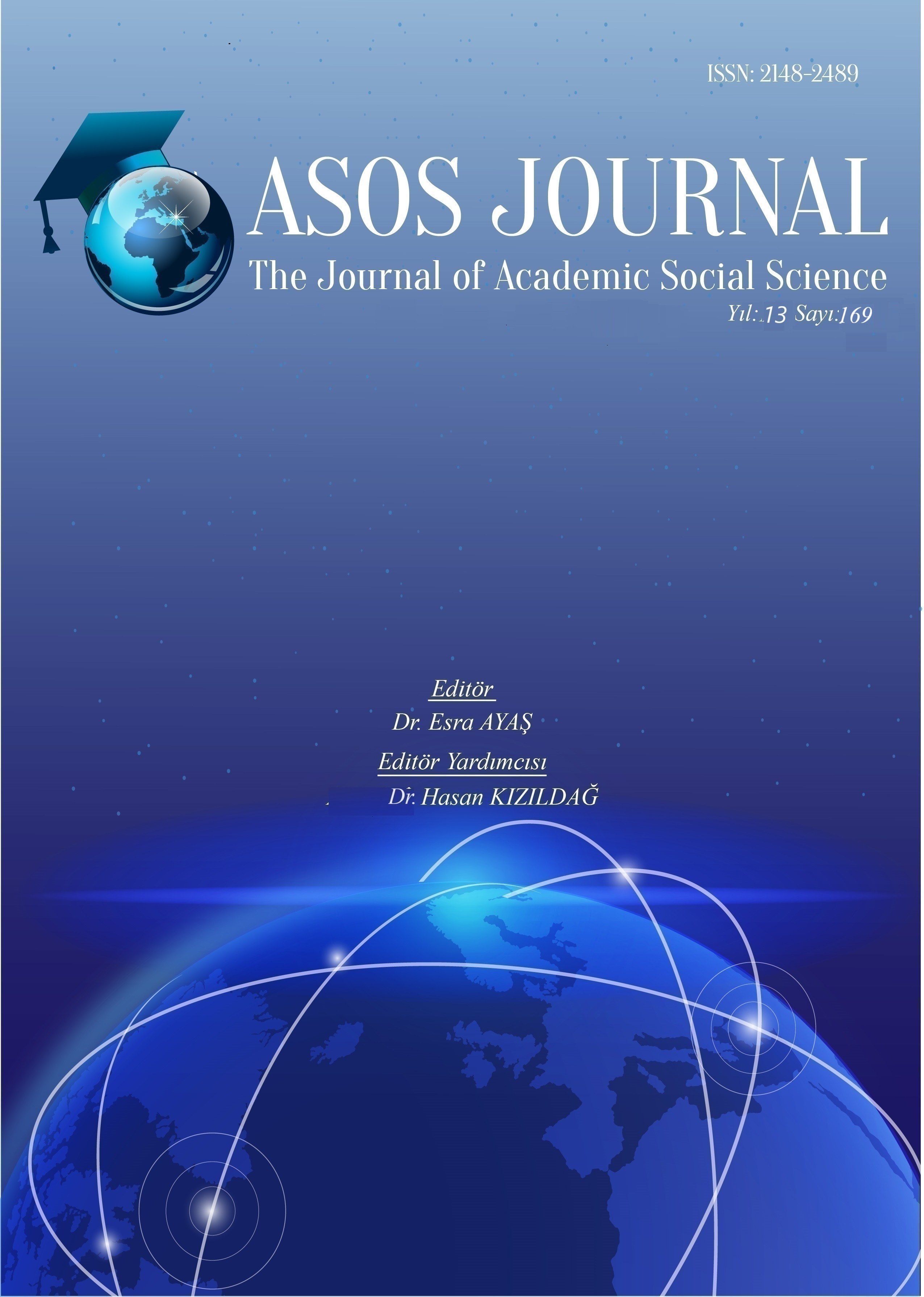Author :
Abstract
Oyunların bir benzetim, yansıtma ve temsil etme özelliklerine sahip olduğu hakikati kabul edildiğinde tiyatro sahnesinde yaşamın bizzat kendisinin icra edildiği veya sergilendiği düşünülebilir. Psikanalizdeki yorumlamalar bağlamında sahnede korobaşı ya da koro süperego’yu (toplum), sahnede rollerini gerçekleştiren dramatist oyuncular ego’yu (benlik ya da ben), sahnelenen kurgusal metin büyük bir çabayla oluşturulan ve düzeni temsil eden kültürü tehdit eden id’i (bilinçaltı) temsil eder. Metinlerde sıkça karşılaşılan kâhinler geleceği göremeyen insanoğluna alınyazısını daha önceden bildiren haberciler konumundadırlar. Bu gaipten haber veren biliciler tanrısal bilgileri ve olacak olanları aktarmalarına, işaret etmelerine, vurgulamalarına rağmen trajik hatayı gerçekleştiren kahramanlar (ölümlü bir yazgıyla doğan insanlar) bildiklerini yapmaktan geri durmazlar. Bu eğilim trajik kurgunun bir gereğidir. Tragedyalarda barbarlığa, kargaşaya ve kültürsüzlüke dönüş hissettirilerek izleyicide gerilim, kaygı ve arınmanın gerçekleşmesi ancak soylu ve ortalamadan üstte bir statüde yer alan sahnedeki tragedya kahramanlarıyla gerçekleştirilebilir. Kahramanlar ne kadar soylu ise trajik düşüş de o denli sert gerçekleştirilebilir; bu anlamda tragedyaların aksine komedyalar ‘ancak sıradan hayatları anlatabilir’ bir yaratı olarak düşünülmüş ve kahramanları da o ölçüde sıradan kişilerden seçilmiştir. Araştırmada Sophokles’in “Antigone” tragedyası mit düzleminde ele alınmış; sonuç olarak, kurgusal yapı oluşturulurken, tragedya kahramanları, koro ve korobaşı tarafından mitik unsur, ritüel, inanç, hikâye ve hatırlatmalara sıkça başvurulduğu anlaşılmıştır.
Keywords
Abstract
Accepting the truth that plays possess the qualities of metaphor, reflection, and representation, one can conceive of life itself being performed or exhibited on the theater stage. In the context of psychoanalytic interpretations, the chorus leader or chorus represents the superego (society), the dramatist actors performing their roles on stage represent the ego (self or I), and the staged fictional text represents the id (subconscious), which threatens the culture that is painstakingly constructed and represents order. Oracles, frequently encountered in texts, serve as messengers who foretell the fate to humankind, who cannot foresee the future. While these prophets convey divine knowledge and what is to come, point to it, and emphasize it, the heroes who commit the tragic error (people born with a mortal destiny) do not refrain from doing what they know. This tendency is a requirement of tragic fiction. Tragedies evoke a sense of a return to barbarism, chaos, and unculture, evoking tension, anxiety, and catharsis in the audience. Only through noble and above-average status can tragic heroes on stage be achieved. The more noble the heroes, the more drastic the tragic fall can be; in this sense, unlike tragedies, comedies were conceived as creations that could "only depict ordinary lives," and their heroes were accordingly chosen from ordinary people. This research examined Sophocles' tragedy “Antigone” on the mythical level; as a result, it was understood that mythical elements, rituals, beliefs, stories, and reminders were frequently employed by the tragic heroes, the chorus, and the leader of the chorus in constructing the fictional structure.





